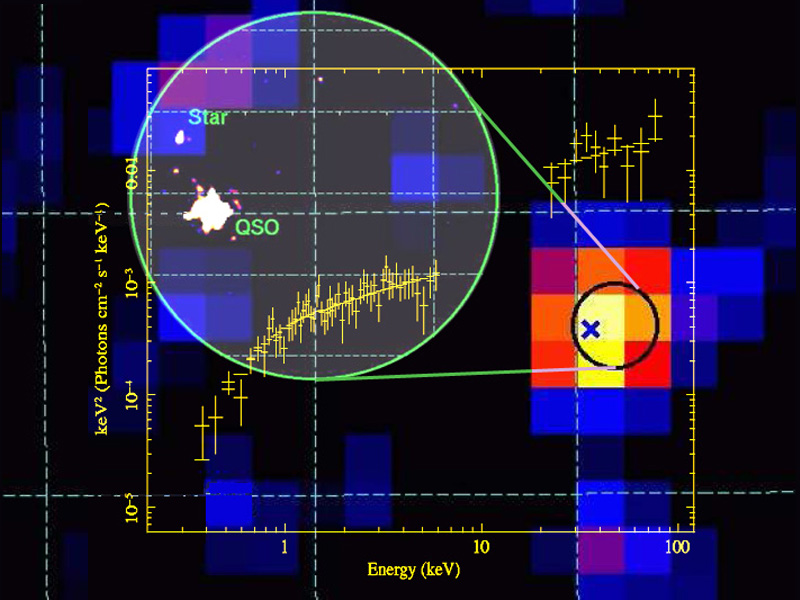
 Credit: L. Bassani, IASF-Bologna, INAF
Credit: L. Bassani, IASF-Bologna, INAF
Far and Away
The International Gamma-Ray Astrophysics Laboratory, or INTEGRAL, has done an impressive job surveying and identifying new hard X-ray and gamma-ray sources in the Universe. But even with its relatively high spatial resolving power (high for a gamma-ray instrument that is) it sometimes sees sources that it finds hard to identify. And, as is often the case, these can be the most interesting sources too. A good case in point is an object identified by INTEGRAL and called IGR J22517+2218. The INTEGRAL image of this source (shown above) was too coarse to positively identify what the source is: star, black hole, pulsar, galaxy, or other never before seen object. Followup observations with the X-ray Telescope (XRT) on the Swift Gamma-ray burst finder helped solve the mystery. The XRT has much better spatial resolving power than gamma-ray telescopes and, when it looked at the INTEGRAL source region, found two objects: a star and an active galaxy, as shown in the inset image above. The characteristics of the INTEGRAL source identified the mysterious source as the active galaxy. Measurements of the distance to the galaxy from its redshift reveals that the source is more than 5 billion lightyears from earth, making this the most distant object yet detected by INTEGRAL. The INTEGRAL observations show that this galaxy has some peculiar properties compared to more nearby active galaxies, like an unusual spectrum, shown in the background of the image above. Maybe this means that such active galaxies were different in the past than they are now?
<
HEA Dictionary ● Archive
● Search HEAPOW
● Other Languages
● HEAPOW on Facebook
● Download all Images
● Education ● HEAD
>
Each week the HEASARC
brings you new, exciting and beautiful images from X-ray and Gamma ray
astronomy. Check back each week and be sure to check out the HEAPOW archive!
Page Author: Dr. Michael F. Corcoran
Last modified Monday, 26-Feb-2024 17:10:34 EST


